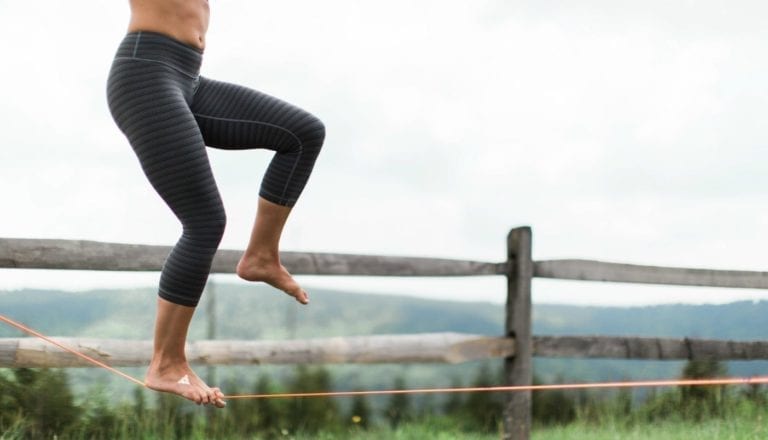
a real sign
of progress
is when we no longer
punish ourselves
for our imperfections
The dream job that went with another candidate. The boss who let you go. The submission after submission that never got published. The rejection letters. The cut from the team. The callback that never happened. The denial of a loan. The exhaustive attempt to please everyone that pleased no one at the end. These failures all have one thing in common: each one comes with a valuable lesson.
As Alexander Graham Bell famously quipped, “When one door closes, another opens; but we often look so long and so regretfully upon the closed door that we do not see the one which has opened for us.” It’s human nature to cling to what is not, instead of accepting what is. Perhaps we’re afraid of falling behind, and maybe we’re caught in the confines of comparison. But the failure itself is not what holds us back—it’s our attachment to it, the way it hurt our pride and bruised our egos and left us in the dust. Then comes the mind’s self-flagellation: Why did I do that? That was so stupid of me. I’m stupid. I’m a fraud. Why do I even bother? I can’t do that. I’m not good enough. I’m not smart enough. Nobody cares what I have to say. It’s hopeless.
The fear of failure is real.
It’s often the one thing that stands in the way of our success. But life is messy. We are all imperfect and flawed. And if we didn’t at least give something the old college try then we’d never grow. We’d stay stagnant and small, instead of expansive and limitless. We’d stay cowering on the edge instead of taking a bold leap of faith. What if we were on the brink of a major breakthrough, and never even gave ourselves the chance? And what if we never even came to our yoga mat because we had made false assumptions about our lack of flexibility or strength? Then all of the lessons we’ve learned about ourselves throughout the journey of our practice would never have been revealed. But when we give ourselves permission to stumble and fall in, say, Warrior III or a handstand, we transcend from our own self-imposed boundaries. We soar to new heights.
It’s easy to forget that yoga is not a competition when our innate desire to be competitive can all too often show up in our practice. While there are times within our work and leisure activities when competition is healthy (and even necessary), our practice ought to serve as respite from that innate drive to “push” and be “the best.” And when that drive is challenged by the possibility of not being “the best” or most capable yogi in the room, not even by a long shot, the fear of failure stops us short and prevents us from cultivating a healthy sense of humility.
This idea of “winning” or being better than others, or keeping up with the joneses, could derive from an inherent lack of self-worth. It’s as though we need to prove our value and worthiness to others as a means of boosting our own belief in our abilities and ourselves. But we ought to remind ourselves of the meaning of “Namaste”: the light in me honors light in you. We ought to remember that we are always enough as we are, we are all progressing at our own perfect pace.
When we can cultivate real kindness toward the Self, we can extend that same kindness to others with effortlessness and ease; a nurturing that becomes part of our nature.
Self-love and self-acceptance are now widely regarded a revolutionary act, one that empowers us to forgive one another and ourselves. When we can find the courage to forgive ourselves when we mess up, we learn to practice that same compassion toward others, despite our differences, abilities, and where we’re at on the path.

We all make mistakes.
To err is human! And our very own mistakes are some of our greatest teachers, revealing certain truths about ourselves that may have previously been hidden from view. Growth and progress can only happen when we are kind to ourselves, when we can fully accept the possibility of failure and be okay with it. After all, when we are in pursuit of our goals or something very close to our heart, aren’t we often our own worst critics—judging our progress and process, and comparing our authentic path to that of another? Yes, we will inevitably mess up, but why waste that energy on false beliefs about ourselves that we’re not good enough? Where is the self-compassion in that?
When we are kind to ourselves we foster space for which to grow and create. We can show up for others from a place of loving-kindness—of unlimited potential. When we allow ourselves to be humble, we can recognize that not only do we respect and love ourselves, but we also respect and love each other without criticism, judgment, or envy.
Be fearless when you fall.
Next time you stumble… Smile. Empower yourself to try and try again, and also accept when it is time to change course—without being so hard on yourself. Without failure, there would be no success. There would also have never been a light bulb on the ten thousandth try.
—
 Andrea Rice is a writer and yoga teacher. Her work has also appeared in The New York Times, Yoga Journal, NY Yoga + Life, SONIMA, mindbodygreen and other online publications. Connect with Andrea on Instagram, Facebook, Twitter, and her website.
Andrea Rice is a writer and yoga teacher. Her work has also appeared in The New York Times, Yoga Journal, NY Yoga + Life, SONIMA, mindbodygreen and other online publications. Connect with Andrea on Instagram, Facebook, Twitter, and her website.